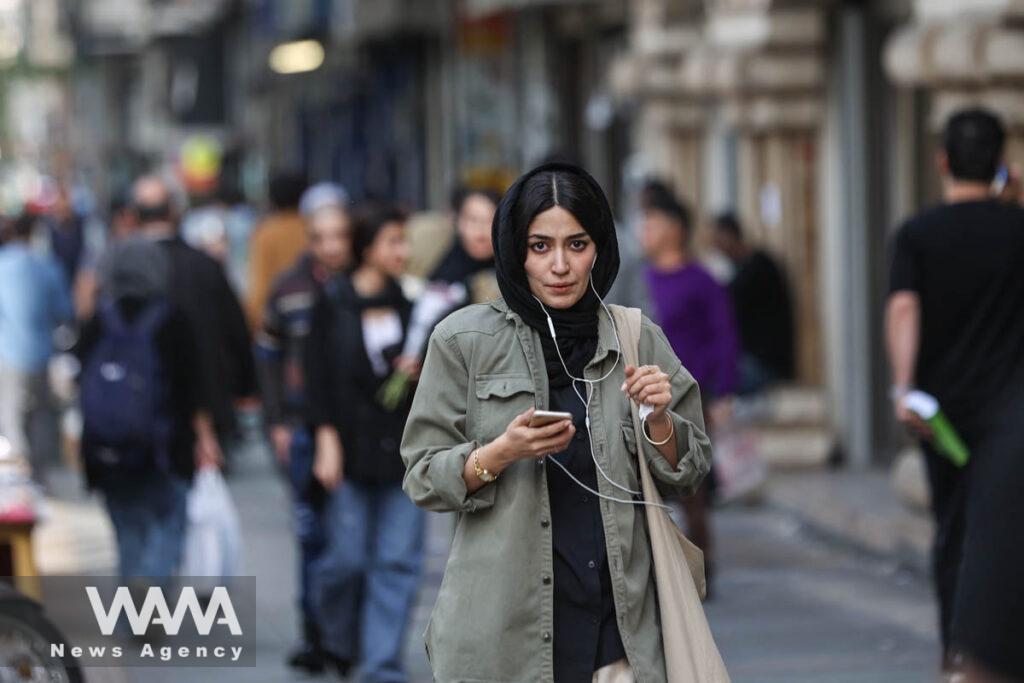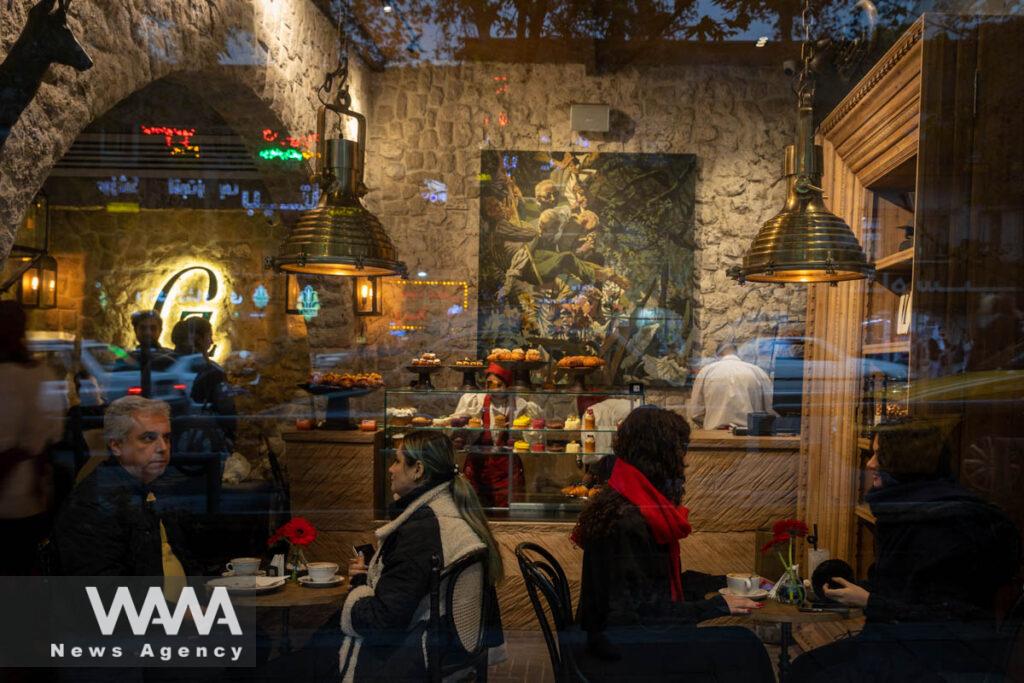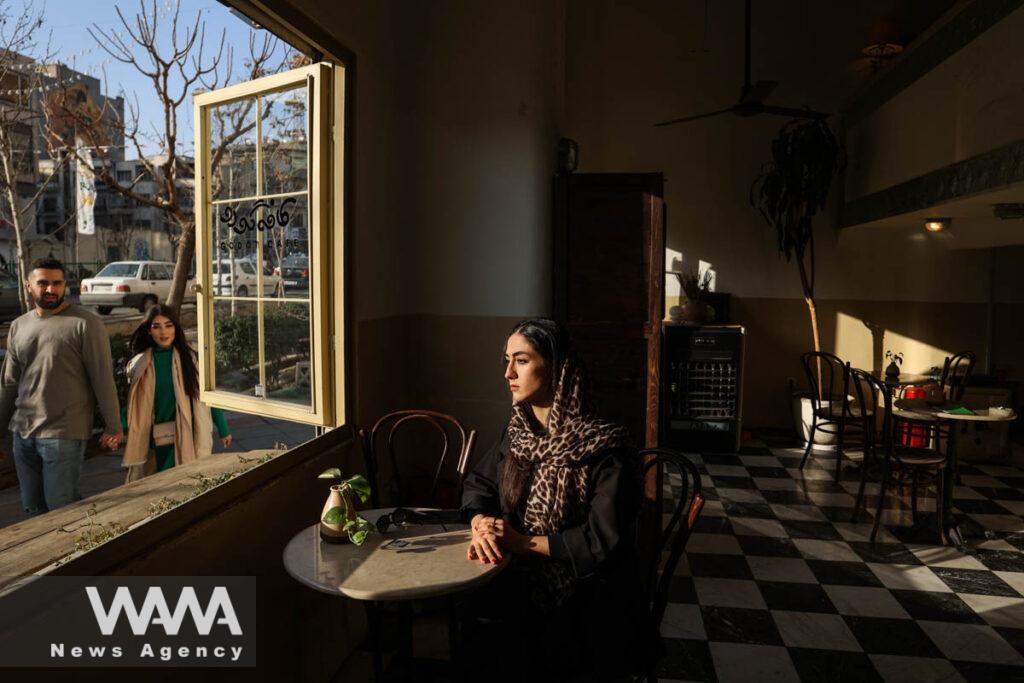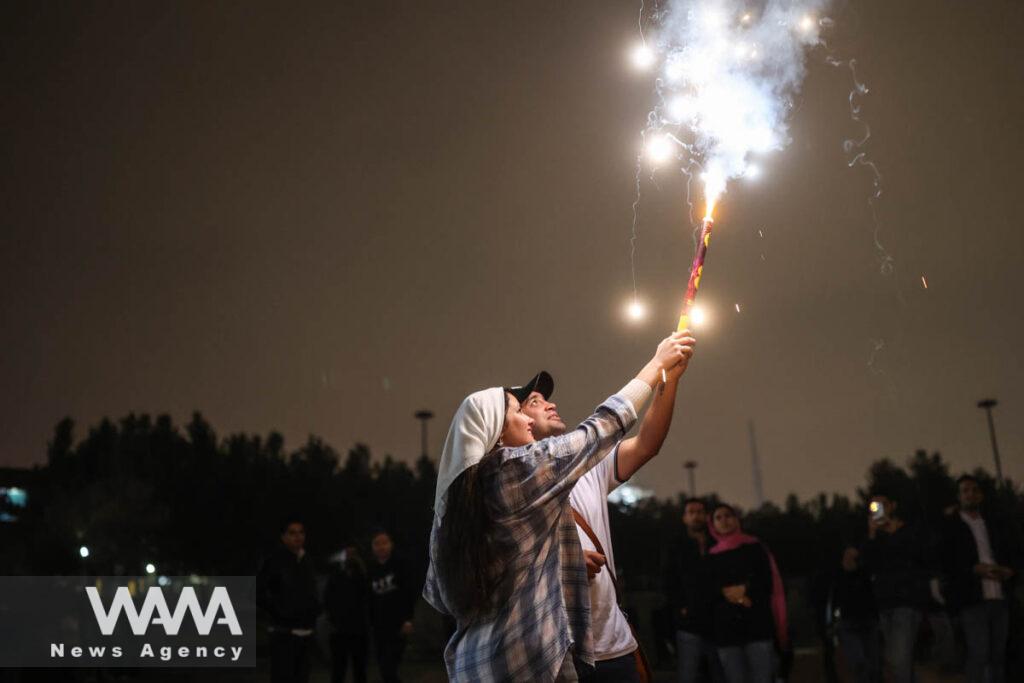Lonely in Tehran: Why It’s Time to Reconnect
WANA (Dec 22) – When Sara moved to Tehran for a new job, she expected the excitement of city life: crowded streets, endless opportunities, and new friendships. Instead, she found herself spending most evenings alone in her small apartment, scrolling endlessly through social media.
Despite being surrounded by millions of people, Sara felt lonelier than ever. She isn’t the only one; urban isolation is quietly becoming a reality for many living in Tehran.
Modern cities often promise connection but fail to deliver the dreamy bonding we usually see in movies and TV shows. In addition to the usual amount of isolation in metropolitan cities, Tehran’s unique social and cultural structures are making it increasingly difficult to develop meaningful relationships.

An Iranian woman walks alone in the street in Tehran, Iran, December 2024. Majid Asgaripour/WANA (West Asia News Agency)
From the pressure of traditional norms to the absence of accessible social spaces, urban life here presents a different set of challenges compared to Western societies.
Why Are We Feeling So Disconnected?
1. The Clash Between Tradition and Modernity
Tehran is a city caught between preserving traditional values and adapting to modern lifestyles. While younger generations crave more freedom to socialize, dating and casual meetups are often frowned upon. For instance, dating is still not widely accepted in Persian culture, and it’s only among the very youngest generations that this practice is slowly gaining ground.
Marriage remains a significant milestone in Iranian culture, often tied to access to housing and independence. For example, renting an apartment as a single person can be challenging. Many landlords prefer to rent to married couples, as they are perceived to be more stable and reliable. This expectation pressures young adults to marry before they might be ready.
2. Limited Social Spaces
Unlike Western cities, where bars, clubs, and cafes serve as hubs for social interaction, Tehran lacks equivalent public spaces where people can casually gather. Cafes do exist, but they’re often seen as trendy spots for the elite, not accessible or appealing to everyone. “Going to a cafe feels more like an event than a casual outing,” explains Reza, a university student.

Iranians in a cafe in Tehran, Iran December, 2024. Majid Asgaripour/WANA (West Asia News Agency)
Many social activities are confined to private homes in traditional Persian culture. This limits opportunities for spontaneous or informal meetups.
3. The Digital Disconnect
Social media has become a double-edged sword in Tehran. On one hand, platforms like Instagram and Telegram provide a sense of connection and a window to the outside world. On the other, they’ve replaced real-world interactions with superficial online exchanges. “I’ll scroll through my friends’ posts, but it doesn’t make me feel closer to them,” says Amir, a 29-year-old architect.
Also, social media sometimes displays an unrealistic image of how an individual life should be: lifestyle, education, money and .. therefore when exposed to these ridiculously high and unrealistic standards, viewers feel like they’re not good enough to be out in the society socializing with other peers and therefore isolate themselves more and more each day.
Urban isolation in Tehran isn’t just about loneliness; it’s reshaping the way people view themselves and their place in society. “Loneliness often leads to a sense of moral fatigue,” says Dr. Neda Shafiei, a psychologist specializing in urban mental health. “When people feel disconnected from their community, they lose the motivation to contribute to it.”
Traditional values emphasize hospitality and close-knit family ties, but modern life’s pressures corrupt these connections. Many young adults live far from their families due to work or education, weakening the support systems that once defined Iranian society.

An Iranian woman at in a cafe in Tehran, Iran, December 2024. Majid Asgaripour/WANA
Urban isolation is more than just a personal issue—it’s a societal challenge with far-reaching implications. Tehran’s future depends on reversing this trend for several reasons:
- Mental Health Crisis: Chronic loneliness has been linked to increased rates of depression, anxiety, and other mental health disorders. “If we don’t address this problem, we risk seeing a generation struggling with mental health challenges that could have been prevented,” warns Dr Shafiei.
- Weakening Community Bonds: Strong communities are essential for a healthy society. As Tehran’s residents grow more isolated, the bonds that hold neighborhoods and communities together are weakening. This erosion can lead to increased social tensions, reduced civic engagement, and a general sense of mistrust.
- Economic Consequences: Urban isolation can also have economic impacts. Loneliness reduces productivity and creativity as individuals struggle to find purpose and motivation. Also, the lack of social interaction kills innovation, which thrives on collaboration and exchanging ideas.
- Cultural Erosion: Persian culture is rich with traditions that emphasize community and hospitality. However, the rise of urban isolation threatens to erode these values. “If we lose our sense of connection, we risk losing a part of our cultural identity,” says Leila Hosseini, an urban planner.
- Intergenerational Gaps: The disconnect between younger and older generations grows as modern lifestyles pull families apart. This gap not only weakens the transfer of cultural values but also leaves older adults feeling neglected and younger people without valuable guidance.
Despite the challenges, some Tehranis are finding creative ways to rebuild a sense of community.
As a representative of this younger, lonely generation, one of the most effective actions that can be implemented in the urban society to help this isolation issue is to throw social events and make the exclusive festivals public, big and fun!

Iranians light fireworks during the Wednesday Fire celebration – in a park in Tehran, Iran- Majid Asgaripour/WANA (West Asia News Agency)
Although Tehran’s culture has several religious festivals planned every once in a while, some younger generations do not find them inviting; by organizing events that are more dynamic and engaging, including competitions, singing, talent shows, charity events like marathons, and generally group and collective activities, Tehran can become a little more friendly and a little less isolating!
While Tehran may lack the bars and huge festivals often found in Western cities, its true strength lies in its rich culture of warmth and hospitality. By embracing and adapting these cherished traditions to modern life, the city can continue to be a welcoming haven where everyone feels a sense of belonging and connection.













